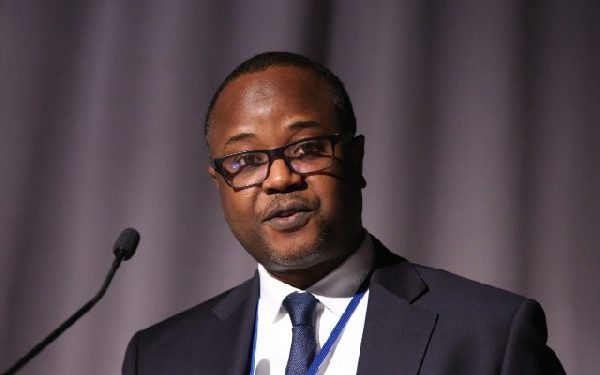The First Deputy Governor of the Bank of Ghana, Dr. Maxwell Opoku-Afari has stated that resetting Ghana’s economy back to resilience would be a gradual process over the next two or three years.
According to him, this would require the collective and collaborative support, of both the private and public sectors.
Outlining some short-term strategies to reset Ghana’s economy, at the opening ceremony of the 5th CEOs Summit in Accra, Dr. Opoku-Afari noted that lessons drawn from other countries on “building back better” from the pandemic indicate that a flattened COVID-curve is a necessary condition prior to a massive rollout of policies and strategies designed to reset the economy.
“Reason being that subsequent COVID-19 flare-ups could potentially slow the recovery process, thus the need to sustain a flattened COVID-curve. By this, priority must be given to health sector policies and other supportive measures including testing, tracing and treatment, alongside mass vaccinations rollouts should continue to achieve some form of herd immunity. The flattened curve would keep the economy open for business, provide some certainty to the economic outlook, and prevent diversion of resources to any resurgence of the pandemic”, he said.
He also urged the government to maintain the COVID-policy responses to sustain the ongoing V-shaped recovery.
“To a large extent, the COVID-19 policy responses (accommodative fiscal and monetary policies, macro-prudential measures, and other initiatives) proved timely and helped moderate what could possibly have been a worst outcome for the Ghanaian economy.
Already, the implementation of these policies has spurred some recovery evidenced by improvement in the Bank’s high-frequency economic indicators for the first quarter of 2021”, he added.
He further noted that though inflation has eased and declined back to single digits in April 2021, the exchange rate remains relatively stable, business and consumer confidence has bounced back, and the Bank of Ghana’s high-frequency indicators have rebounded to near pre-pandemic levels.
He noted that government strategies should at resetting the economy should include innovative and actionable macroeconomic policies to unwind the Covid-related fiscal excesses and lower the public debt to sustainable levels.
He however called for prudent fiscal policies which he said the 2021 Budget has already reset fiscal policy on a consolidation path with the deficit projected to decline to 9.5% of GDP and unwind over the medium-term to 5% by 2024. This it believes would ensure medium-term debt sustainability.
Dr. Opoku- Afari also assured Ghanaians of the commitment of the banking and other non-bank financial institutions to remain resilient, inclusive, and supportive of resetting Ghana’s post-Covid economy back to stability and growth.
Source: citibusinessnews.com





